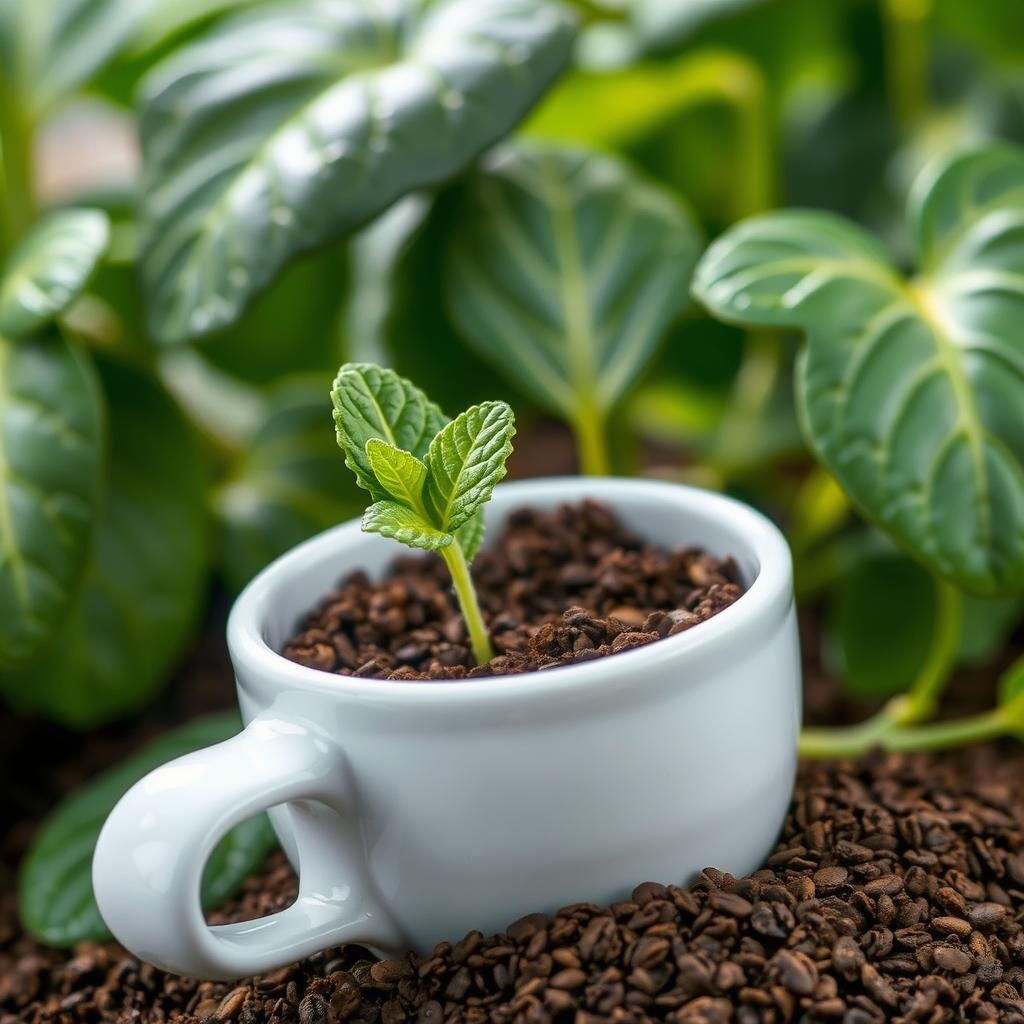What Vegetables Don't Like Coffee Grounds? Discover Which Plants to Avoid!

Coffee grounds are a popular addition to gardens, known for enriching the soil and providing nutrients to various plants. However, not all vegetables thrive when exposed to coffee grounds. In this article, we will explore which plants should be kept away from this seemingly beneficial organic matter. Understanding the compatibility of coffee grounds with specific vegetables is crucial for gardeners looking to maximize their crop health and yield. By identifying which plants dislike coffee grounds, you can make informed decisions and cultivate a flourishing garden without compromising your vegetables’ well-being. Let’s dive into the world of coffee ground gardening!
Which Vegetables Dislike Coffee Grounds?
Coffee grounds can be a beneficial addition to the garden due to their nutrient content and ability to improve soil texture, but certain vegetables may not respond well to them. Vegetables such as tomatoes, potatoes, eggplants, cucumbers, and peppers are known to dislike coffee grounds because the acidity can disrupt their growth and development. These plants generally thrive in a more neutral pH level and may suffer from nutrient imbalances if coffee grounds are added excessively to the soil. Therefore, gardeners should be cautious when applying coffee grounds around these particular vegetables to avoid hindering their growth.
Tomatoes
Tomatoes are particularly sensitive to the acidity of coffee grounds, which can lead to nutrient imbalances and stunted growth. While coffee grounds can benefit other plants, excessive use around tomatoes can lead to blossom end rot, a condition resulting from calcium deficiency. Maintaining a balanced pH level in the soil is crucial for optimal tomato development, making it wise to refrain from using coffee grounds in their vicinity.
Potatoes
Potatoes dislike coffee grounds primarily due to their moisture-retaining properties, which can create overly wet conditions in the soil. This moisture can lead to potato blight, a fungal disease that severely affects potato yields. Additionally, the acidity of coffee grounds can hinder potato tuber development, so it's advisable to avoid using them when planting or caring for potatoes in the garden.
Eggplants
Eggplants thrive in slightly alkaline soils, making them another vegetable that does not appreciate the acidity of coffee grounds. The excess acidity can interfere with nutrient uptake, impacting the overall health and fruit production of the plants. Gardeners should focus on providing well-drained, neutral soil conditions for eggplants to flourish, steering clear of coffee grounds in the process.
See also:
Cucumbers
Cucumbers are known to prefer a more neutral soil pH and can suffer from various issues if coffee grounds are aplenty in their growing environment. The presence of coffee grounds can lead to mildew problems, as the high nitrogen content can boost leaf growth at the expense of fruiting. Thus, applying coffee grounds around cucumbers may lead to limited fruit yield and increased susceptibility to diseases.
Peppers
Like tomatoes and eggplants, peppers are part of the nightshade family and require specific soil conditions to thrive. The acidity of coffee grounds can stunt pepper growth and fruit production, leading to reduced yields. Gardeners should aim for a balanced nutrient mix in pepper plants, avoiding coffee grounds to ensure optimal soil conditions are maintained for successful cultivation.
| Vegetable | Dislike Reason |
|---|---|
| Tomatoes | Acidity disrupts nutrient absorption and can cause blossom end rot. |
| Potatoes | Moisture retention increases risk of blight and hinders tuber formation. |
| Eggplants | Excess acidity affects nutrient uptake and hinders growth. |
| Cucumbers | High nitrogen can lead to mildew and reduced fruit yield. |
| Peppers | Acidity limits growth and fruit production. |
Understanding the Impact of Coffee Grounds on Specific Vegetables
Coffee grounds can be a beneficial addition to many plants, providing nutrients and improving soil structure, but not all vegetables respond positively. Certain vegetables, especially those that prefer less acidic conditions or are sensitive to excessive nitrogen, may be adversely affected by coffee grounds. Tomatoes and potatoes fall into this category; they thrive in more balanced soil and can suffer from root damage or growth issues when exposed to the high levels of acidity and nitrogen found in used coffee grounds. It’s essential to identify which plants will thrive without the addition of coffee grounds to maintain a healthy and productive garden.
Vegetables Sensitive to Acidity
Certain vegetables, such as carrots and cucumbers, are particularly sensitive to soil acidity. Coffee grounds can lower the pH levels of the soil, which might inhibit the healthy growth of these plants. Carrots require a more neutral pH for optimal development since acidic conditions can lead to stunted growth and less flavorful roots. Similarly, cucumbers prefer balanced soil conditions for adequate water retention and nutrient availability. Thus, it's advisable to avoid mixing coffee grounds into the soil where these vegetables are planted.
Plants Affected by High Nitrogen Levels
Some plants are negatively impacted by the high nitrogen content in coffee grounds. For example, beans and peas are legumes that can fix their own nitrogen. Adding coffee grounds to their soil can lead to an excess of nitrogen, which may result in lush foliage at the expense of fruit and flower production. This imbalance can disrupt their growth cycle, meaning that it’s best to keep coffee grounds away from these nitrogen-sensitive legumes.
See also:
Root Vegetables and Coffee Grounds
As noted earlier, root vegetables like potatoes can be adversely affected by coffee grounds. Potatoes thrive in dry, well-drained soil that allows for good air circulation. Coffee grounds can retain moisture and create a more compacted environment, which is detrimental to root development. Excess moisture can also lead to disease and rot in the tuberous roots of potatoes, so gardeners should use caution when considering coffee grounds around these plants.
Nightshade Family and Coffee Grounds
Within the nightshade family, vegetables such as tomatoes and peppers can also suffer from the impacts of coffee grounds. These plants prefer a slightly alkaline to neutral soil, and the acidity from coffee grounds can create an adverse effect on their growth. Tomatoes, in particular, can experience blossom end rot and other growth issues if the soil pH shifts too low due to coffee ground application, leading to poor yield and fruit quality.
General Guidelines for Using Coffee Grounds in Gardening
To effectively use coffee grounds in your garden, it’s important to apply them in moderation and to be aware of the types of plants you grow. Always conduct a soil test to determine pH levels before adding coffee grounds. For plants that do not tolerate acidity well, it’s better to use coffee grounds as a compost ingredient, where they can breakdown and benefit a wider range of plants once mixed with other organic materials. Understanding each plant's particular needs is key to achieving optimal growth and a thriving garden.
Questions from Our Readers
What vegetables are harmed by coffee grounds?
Many vegetables can be negatively affected by coffee grounds, notably root vegetables like carrots and beets, as they can lead to a bitter taste. Additionally, some leafy greens such as spinach may also experience adverse effects from the acidity of coffee grounds.
Can coffee grounds be used with all plants?
No, coffee grounds should not be used with all plants. While they are beneficial for acid-loving plants like tomatoes and rhododendrons, they can be detrimental to alkaline-loving plants, such as cabbage and broccoli, leading to potential growth issues.
See also:
Are there any vegetables that thrive with coffee grounds?
Yes, certain vegetables indeed thrive with coffee grounds. Acid-loving plants, such as blueberries and potatoes, often benefit from the added nutrients and improved drainage that coffee grounds provide, enhancing their overall growth.
How should coffee grounds be applied to vegetables?
Coffee grounds should be applied sparingly and mixed into the soil to prevent any over-concentration, which can harm plants. It's advised to use them as a top dressing or as part of a compost heap, ensuring a balanced application for healthy growth.

If you want to read more articles like What Vegetables Don't Like Coffee Grounds? Discover Which Plants to Avoid!, we recommend you check out our Plants category.
Leave a Reply
Related Articles